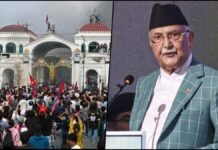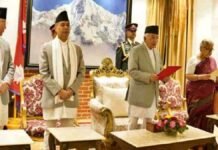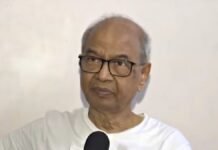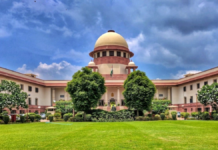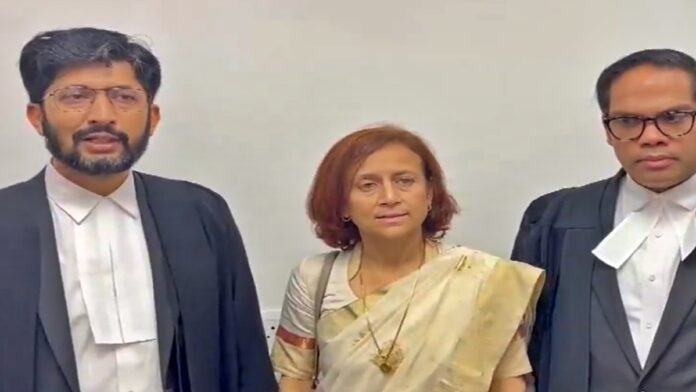
Key Points
- The Supreme Court of India has issued notices to the Central Government, Union Territory of Ladakh administration, and the Superintendent of Police of Jodhpur Central Jail regarding climate activist Sonam Wangchuk’s detention under the National Security Act (NSA)
- The petition was filed by Wangchuk’s wife, Gitanjali Angmo, challenging the legality of his detention and seeking his immediate release from Jodhpur Central Jail
- Angmo has strongly contested the detention, asserting that her husband poses “no national security threat” and calling the detention “illegal”
- The family claims they have not been provided with the official grounds for detention, raising concerns about procedural transparency and due process
- Advocate Sarvam Ritam Khare, representing the family, confirmed plans to travel to Jodhpur to meet with the detained climate activist
- Wangchuk, a renowned engineer and education reformer who inspired the character Phunsukh Wangdu in the Bollywood film “3 Idiots,” has been a vocal advocate for Ladakh’s environmental protection and constitutional safeguards
New Delhi: The Supreme Court of India has taken cognizance of the detention of prominent climate activist and education reformer Sonam Wangchuk under the stringent National Security Act (NSA), issuing formal notices to multiple government authorities. The apex court’s intervention came following a petition filed by Wangchuk’s wife, Gitanjali Angmo, who has challenged the legality and constitutional validity of her husband’s detention at Jodhpur Central Jail in Rajasthan.
The notices have been directed to the Union Government of India, the administration of the Union Territory of Ladakh, and the Superintendent of Police overseeing Jodhpur Central Jail, where Wangchuk is currently being held. The Supreme Court’s decision to issue notices indicates that the matter will receive judicial scrutiny at the highest level, with the respondent authorities required to submit their official responses explaining the circumstances and legal basis for the activist’s detention.
Family Challenges Detention as “Illegal”
Gitanjali Angmo has mounted a strong challenge to her husband’s detention, categorically asserting that the invocation of the National Security Act against the climate activist is unwarranted and constitutionally questionable. Speaking about the detention, Angmo stated unequivocally, “It was an illegal detention. He is in no way a national security threat. So he should be released immediately.”
Her statement raises fundamental questions about the application of the NSA, a preventive detention law that allows authorities to detain individuals for up to 12 months without formal charges if they are deemed threats to national security, public order, or essential services. Critics of the law have long argued that it provides excessive powers to the executive branch and can be subject to misuse against activists, journalists, and dissidents.
Grounds of Detention Not Disclosed
Adding to the family’s concerns, Angmo revealed that the official grounds for her husband’s detention under the NSA have not been communicated to them, raising serious questions about procedural compliance and transparency. “The grounds of detention have not been given to us,” she stated, highlighting what appears to be a violation of established legal procedures.
Under Indian law, when a person is detained under the NSA, the detaining authority is required to communicate the grounds of detention to the detenu at the earliest opportunity, generally within five to fifteen days. The failure to provide these grounds not only hampers the detenu’s ability to make an effective representation against the detention order but also raises constitutional concerns about the right to a fair hearing and access to justice.
Legal Team Plans Jodhpur Visit
Advocate Sarvam Ritam Khare, who is representing Sonam Wangchuk and his family in this matter, confirmed that the legal team would be traveling to Jodhpur to meet with the detained activist. “We will be going to Jodhpur to meet Sonam Wangchuk today,” Khare stated, indicating the urgency with which the legal team is approaching the case.
The visit assumes critical importance as it will allow the legal representatives to assess Wangchuk’s physical and mental condition, gather firsthand information about the circumstances of his detention, and prepare a comprehensive legal strategy for challenging the NSA order before the Supreme Court. Such meetings between detained individuals and their legal counsel are protected rights under Indian law, ensuring that even those held under preventive detention laws maintain access to legal representation.
Background: Who is Sonam Wangchuk?
Sonam Wangchuk is one of India’s most celebrated education reformers and environmental activists, particularly known for his pioneering work in Ladakh. An engineer by training, Wangchuk founded the Students’ Educational and Cultural Movement of Ladakh (SECMOL) and established an alternative school that revolutionized education in the cold desert region by making it culturally relevant and environmentally sustainable.
His innovative approaches to education and sustainable development, including the creation of ice stupas (artificial glaciers) to address water scarcity in Ladakh, have earned him national and international recognition. Wangchuk was awarded the Ramon Magsaysay Award in 2018 for his contributions to education and environmental conservation. He is also widely believed to have inspired the character of Phunsukh Wangdu (played by Aamir Khan) in the blockbuster Bollywood film “3 Idiots.”
Advocacy for Ladakh’s Rights
In recent years, Wangchuk has emerged as a prominent voice advocating for constitutional safeguards for Ladakh following its conversion from a state (as part of Jammu and Kashmir) to a Union Territory in August 2019. He has been leading peaceful campaigns demanding inclusion of Ladakh under the Sixth Schedule of the Constitution, which would provide autonomous council powers and protection of land, employment, and cultural identity for the region’s indigenous population.
Wangchuk has also been vocal about environmental concerns in the ecologically fragile Himalayan region, raising alarms about unchecked tourism, construction activities, and military infrastructure projects that could irreversibly damage Ladakh’s delicate ecosystem. His activism has included peaceful protests, awareness campaigns, and dialogue with policymakers at various levels.
National Security Act: A Controversial Law
The National Security Act, 1980, under which Wangchuk has been detained, remains one of India’s most controversial preventive detention laws. The Act empowers central and state governments to detain individuals to prevent them from acting in ways prejudicial to national security, public order, maintenance of essential supplies and services, or defense of India.
Critics argue that the NSA’s provisions are draconian, as they allow detention without formal charges for up to 12 months, with minimal judicial oversight during the initial detention period. The law has been invoked in numerous cases involving political activists, protesters, and dissidents, leading to allegations of misuse to silence legitimate democratic dissent.
The Supreme Court has, in several landmark judgments, laid down stringent guidelines for the application of preventive detention laws, emphasizing that such extraordinary powers must be exercised sparingly, with clear justification, and in strict compliance with constitutional safeguards. The court has repeatedly held that preventive detention should not be used as a substitute for ordinary criminal proceedings.
Legal and Constitutional Questions
The detention of a prominent climate activist and education reformer under the NSA raises several critical legal and constitutional questions. First, whether the activities of an individual peacefully advocating for environmental protection and constitutional rights can legitimately be construed as threats to national security. Second, whether the procedural requirements for NSA detention, including timely communication of grounds, have been properly followed.
Third, the case raises broader concerns about the shrinking space for peaceful activism and dissent in democratic India. The use of stringent security laws against individuals engaged in constitutionally protected activities such as freedom of speech, peaceful assembly, and petition to the government has become a subject of intense debate among legal experts, civil society organizations, and human rights defenders.
What Happens Next?
With the Supreme Court having issued notices, the Union Government, Ladakh administration, and jail authorities will be required to file their counter-affidavits explaining the legal basis for Wangchuk’s detention and addressing the specific grounds raised in the petition. The court will then hear arguments from both sides before deciding whether the detention order should be upheld, modified, or quashed.
The case is likely to attract significant public and media attention, given Wangchuk’s prominence and the broader implications for civil liberties and environmental activism in India. Legal observers will be closely watching how the Supreme Court balances considerations of national security with constitutional protections for freedom of expression and peaceful protest.
The outcome of this case could have far-reaching implications not only for Sonam Wangchuk personally but also for countless other activists, environmentalists, and civil society voices who work to hold governments accountable and advocate for marginalized communities across India. As the legal proceedings unfold, the case serves as a test of India’s commitment to democratic values, rule of law, and protection of fundamental rights even in the face of executive action invoking national security concerns.





